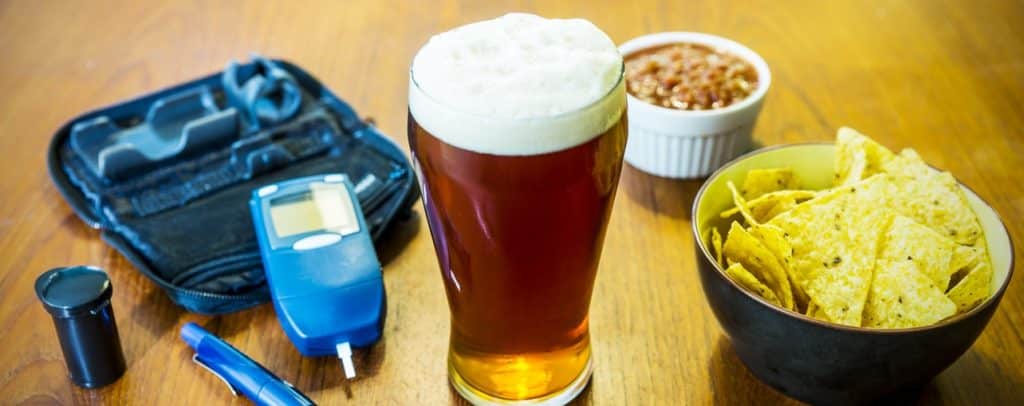The Link Between Alcoholism and Diabetes

Diabetes is a widespread and serious health condition affecting millions globally, but its connection to alcohol consumption remains a critical and often overlooked aspect. While genetics and lifestyle choices are well-known factors contributing to diabetes, alcoholism can also play a significant role in both the development and exacerbation of this chronic illness. Understanding alcohol-induced diabetes is crucial for individuals seeking effective management strategies and treatment for this complex condition.
Understanding Diabetes
Diabetes is a metabolic disorder that occurs when the body either does not produce enough insulin or cannot effectively use the insulin it produces. Insulin is a hormone that regulates blood sugar levels and allows glucose to enter cells, providing them with energy. There are two main types of diabetes:
- Type 1 Diabetes: This is an autoimmune condition where the immune system attacks and destroys insulin-producing cells in the pancreas. People with type 1 diabetes require daily insulin injections to manage their blood sugar levels.
- Type 2 Diabetes: This form of diabetes is more common and typically develops in adulthood. It occurs when the body becomes resistant to insulin, and the pancreas cannot produce enough insulin to compensate.
Can Alcoholism Cause Diabetes?
While alcohol consumption does not directly cause type 1 diabetes, it can significantly contribute to the development of type 2 diabetes and worsen its management. Heavy and chronic alcohol consumption can lead to weight gain, which is a significant risk factor for type 2 diabetes. Additionally, alcohol can impair the liver’s ability to regulate blood sugar levels and interfere with medications used to manage diabetes. Therefore, while alcohol itself may not cause diabetes, its consumption can play a detrimental role in increasing the risk and complicating the management of type 2 diabetes.
Symptoms of Alcohol-Induced Diabetes
When diabetes and alcohol misuse coincide, the symptoms and complications can be severe. Some of the most common symptoms to look out for include:
- Excessive thirst and frequent urination
- Fatigue and weakness
- Numbness or tingling in the hands or feet
- Blurred vision
- Slow-healing wounds or infections
- Unexplained weight loss or gain
Effects of Alcohol Abuse on Diabetes
Excessive alcohol consumption can have various effects on the body, and it can significantly impact onset and existing diabetes. Some of the most serious effects of alcohol abuse on diabetes include:
- Increased Risk of Type 2 Diabetes: Studies have shown that heavy alcohol consumption is associated with an increased risk of developing type 2 diabetes. Alcohol affects the body’s ability to regulate blood sugar levels and can contribute to insulin resistance.
- Weight Gain: Alcoholic beverages are often high in empty calories and can lead to weight gain. Obesity is a significant risk factor for type 2 diabetes, making alcohol consumption a contributing factor.
- Hypoglycemia Risk: For individuals with diabetes who take insulin or certain medications to lower blood sugar, alcohol can lead to hypoglycemia (low blood sugar levels), which can be dangerous.
- Liver Damage: Alcohol is processed in the liver, and chronic alcohol consumption can lead to liver damage. The liver plays a crucial role in regulating blood sugar, and its impairment can worsen diabetes management.
Managing Alcoholism and Diabetes
Managing alcoholism and diabetes requires a comprehensive and individualized approach that addresses both conditions simultaneously. Here are some essential strategies and treatment considerations.
Seek Professional Support
Consult with healthcare professionals, including endocrinologists, addiction specialists, and counselors, to develop a tailored treatment plan. Engage in regular medical check-ups to monitor blood sugar levels, liver function, and overall health. If you are prescribed medications to manage diabetes, adhere to the treatment plan diligently. Attending addiction treatment for alcohol abuse can also help you quit alcohol, which is necessary to effectively manage your diabetes.
Utilize a Support System
Enlist the support of friends and family to encourage healthy habits and hold you accountable for managing both conditions. You may also want to consider joining support groups or attending group counseling sessions that address both alcoholism and diabetes. Interacting with others facing similar challenges can provide valuable encouragement and understanding.
Focus on Developing a Healthy Lifestyle
Focus on developing a healthy lifestyle that can ensure your diabetes remains stable. Follow a balanced diet that supports diabetes management and includes nutrient-dense foods. Engage in regular physical activity to improve insulin sensitivity and overall health, but be sure to incorporate exercise routines that suit your fitness level and interests. Develop and practice coping skills, such as mindfulness, yoga, or meditation, to manage stress without turning to alcohol.
While diabetes is a complex condition influenced by various factors, it is crucial to be aware of the impact alcohol can have on its development and management. If you or someone you know is struggling with alcohol abuse and diabetes, seeking professional help is essential. At Williamsville Wellness we offer both residential addiction treatment in Richmond, VA and online outpatient programs to help individuals overcome alcohol and substance abuse. With a focus on getting to the root cause of addiction, our clients attend multiple individual therapy sessions a day alongside group therapy. We set our clients up for long-term recovery and success. Contact us to learn more or get started on your journey to recovery today.

